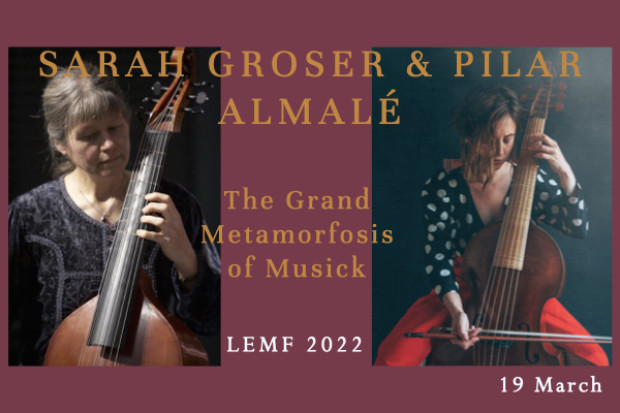
The Grand Metamorfosis of Musick: Music for Two Bass Viols in England and France During the 1680s
This concert is a part of the 2022 Limerick Early Music Festival
Pilar Almalé
Sarah Groser
During the 17th century, England was a great centre for viol playing and composition. Throughout the rest of Europe, the violin family had largely replaced viols, but in England it was not until the restoration of the monarchy in 1660 that the violins started to gain popularity. This popularity was largely due to the musical tastes of King Charles II. Instead of employing viol consorts at court, he favoured the French model of a band of 24 violins. The only viols employed were bass viols since they could be used as continuo instruments. This set the trend for the general population with treble and tenor viols being used less frequently, and bass viols not only playing continuo but also retaining their role as solo instruments. Players from the continent came to learn from their English counterparts, (dwindling by then), bringing with them new compositional flavours.
Meanwhile, France was in the early stages of its blossoming. Monsieur de Sainte-Colombe wrote his Concerts à deux violes esgales around 1680, followed by his pupil, Marin Marais, who in 1686 published his first book of Pièces de violes for one and two viols.
Sarah Groser and Pilar Almalé will explore this repertoire along with other music that would have been played in England around this time, including divisions by Jenkins and Simpson, as well as the “new” music being brought into the country by the likes of Gottfried Finger.
Limerick Early Music Festival is a member of the Irish Early Music Network.











